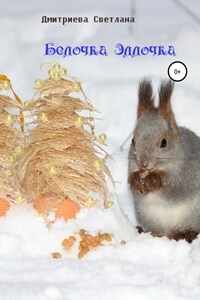There may be more fun than a house-party, but I doubt it. Certainly I, Page Allison, have never had it. What could be more delightful than to spend two weeks in a beautiful old country home with such a host as General Price, and to have as fellow guests all the girl friends you care for most in the world, – to say nothing of some of the male persuasion that at least you don't hate?
Harvie Price had been promised this house-party by his grandfather as reward of merit, and, like most things earned by hard labor, it proved to be worth the work expended. The Tucker Twins of course were there, Mary Flannagan, Shorty Hawkins, George Massie (alias Sleepy), Wink White, Jim Hart, and Ben Raglan, whose other name was Rags. There were two men from the University whom we did not know before, but it did not take long for us to forget that they were new acquaintances. They fitted in wonderfully well and a few hours found them behaving like old and tried friends. Their names were Jack Bennett and Billy Somers, and both of them hailed from Kentucky. There was a new girl in the party, Jessie Wilcox. She wasn't quite so easy to know as the new boys.
I always feel like crying when I think of dear little Annie Pore's connection with that house-party. She was of course the very first person Harvie asked, the one he wanted most. I think in his mind the party was given to Annie, and when Mr. Pore with characteristic selfishness and stubbornness refused to let her go, it was a blow indeed.
His plea was that he needed her to keep the store for him. He had hired a clerk after Annie went to boarding-school, and owing to his growing business, had kept the boy on through vacation, but on the eve of the house-party had seen fit to get rid of him, having sent him on an unasked for and undesired holiday.
"I found it out only this morning," said Harvie gloomily.
He had come to meet us at the landing, most of us having arrived by boat from Richmond. He was doing his best to look cheerful, feeling that a cloud must not be cast over the entire party because one member could not be there. He said he felt he knew me well enough to speak out on the subject of Mr. Pore, and speak out he did.
"But has your grandfather tried to persuade him to let her come?"
"No! You see Grandfather is a great believer in State's Rights, and he carries his theories down to the individual. He says that Mr. Pore is a wrong-headed father but it is his own affair and he refuses to interfere. He takes the stand that he has no more right to dictate to Mr. Pore how to run his household, than Massachusetts had to interfere in our own little matter of slavery here in Virginia, back in the sixties."
"Poor Annie! We shall have to work out some kind of a scheme for her. I'll tell Mary and the Tuckers. I am sure we can get the tiresome old Englishman to come around somehow."
"I wish I thought so, but I tell you that Mr. Arthur Ponsonby Pore has never been known to change his mind. Besides he is leaving to-day for Richmond to be gone several days."
That is often the way with persons who have not much mind to change; they seem to have none to spare; but Mr. Pore was a cultivated, learned gentleman, – surely he was amenable to reason.
Price's Landing was a quiet little wharf almost hidden by the overhanging willows. It took the boat only a moment to drop one mail bag and take on another, or to do the same by the occasional passengers. It seemed hardly worth while to go through the motions of landing for such small traffic, but Harvie assured us that in watermelon time or when tobacco was being shipped they were a very important trading point, one of the busiest along the James.
The village was about an eighth of a mile back from the landing and it looked as though not even watermelon time could wake it up. There were two stores, Mr. Pore's and a rival concern; a blacksmith shop, sprawling far out in the road; a schoolhouse; three churches; a post-office; and four residences.
"I'd like to stop and have all of you see Annie now, but Grandfather is expecting us and perhaps we had better come back later on," said Harvie, who was driving one of the vehicles sent to meet us.
The road to Maxton, the Prices' place, skirted the village and then went directly up quite a steep elevation. The house was built on top of the hill commanding a fine view of the river. The lawn sloped down to the water's edge where one could see a very attractive boat-house and several boats riding at anchor.
"Lovely! Lovely!" we exclaimed.
"I'm mighty afraid I'm going to run down that hill and jump in the water," cried Dum.
"Well, hills are certainly made to run down and water to jump in," declared one of the new acquaintances, Billy Somers, who was standing on the springs of the vehicle in the rear holding on by the skin of his teeth and the back seat. "I bid to do what you do."
The mansion (one could not call it just plain house) was a perfect specimen of colonial architecture, red brick of a rich rare tone with a great gallery across the front, the roof of which was supported by huge white pillars. The front door was a marvel of beautiful proportions, line and detail. A great ball might have been given on the porch, or gallery, as it is called in the South. Indeed, a sizable party might have been held on each one of the broad stone steps that led to the lawn. Only a very long-legged person could go up or down those stairs without taking two steps to a tread.














